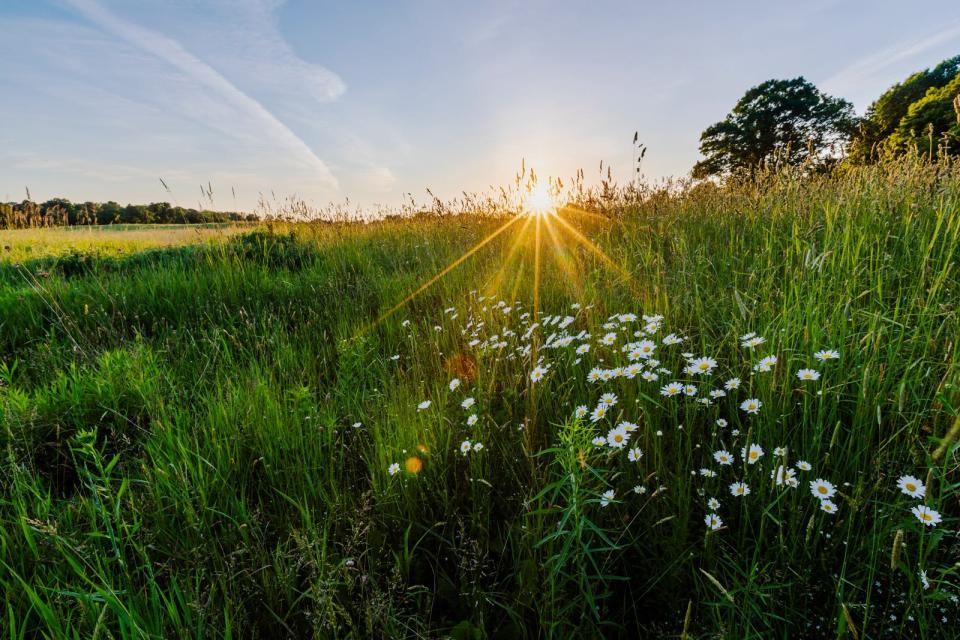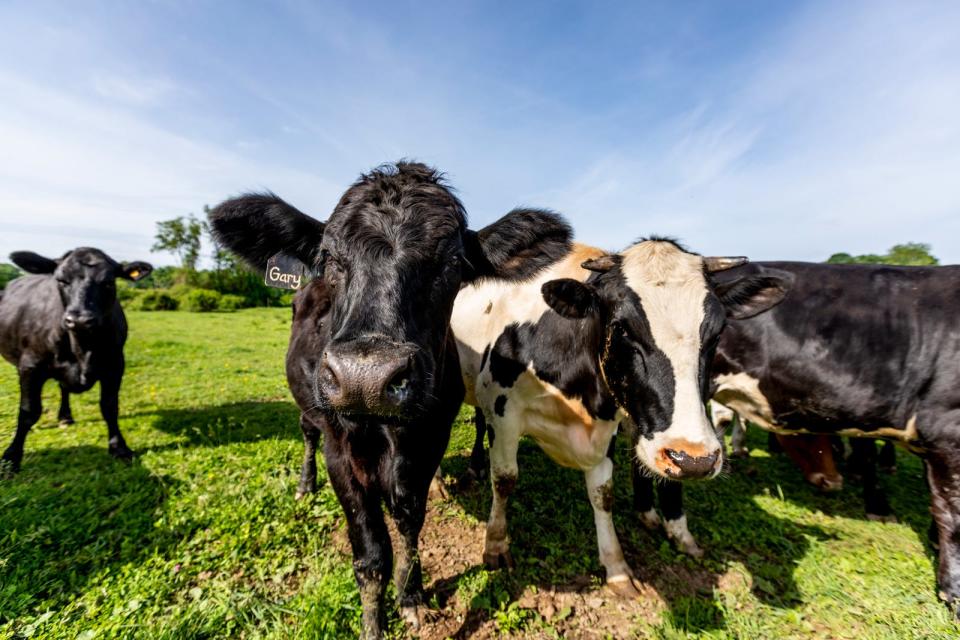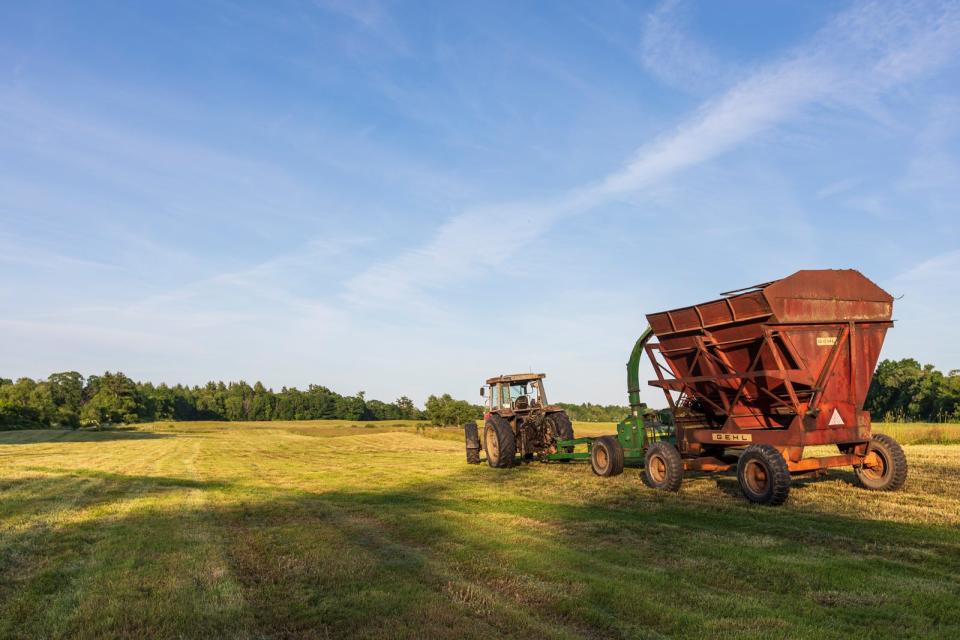Conservation of Great Bay Farm preserves an iconic Seacoast fixture
GREENLAND — There’s history. There’s heritage. And there’s Great Bay Farm in Greenland, which embodies all of it. A family-owned farm passed down generation to generation since the 1800s, Great Bay Farm is as iconic as it gets. One of the few remaining working dairy farms on the Seacoast, the sprawling property is as rich in cultural and community cachet as it is in conservation value – and that’s saying something as both are colossal in their quantity.
It’s late morning in Greenland. Intermittent snow patches dot Great Bay Farm. Mainly it’s just petrified mud tracks and slush, the signposts of a winter that traded precipitation for icebox temps. Two generations of Smiths circle around: Cynthia (the matriarch) and two of her sons, Allen and Steve. There’s a lot of character and personality at play here, and the Smiths are quick to crack jokes laced with their vintage acerbic wit. They’re New England farmers through and through.

And those values, hewn into their DNA for six generations, are what led them to this point: the decision to conserve their legendary property for all time.
It all started in 1899. Originally owned as a summer residence by a doctor from Boston, the property was purchased by Cynthia’s great-grandfather, who moved his modest cow-milking operation from Pittsfield, literally marching his herd down the turn-of-the-century New Hampshire back-roads to Greenland.
And that’s how Great Bay Farm was born: 15 dairy cows producing local milk and an apple orchard that once produced apples for the Frank Jones Brewery to make hard cider. The next 100-plus years saw the farm expand its herd and transform into a full-fledged milking operation: and one of the few dairy farms to remain standing in the region.
Because, let’s face it, being a dairy farmer is not the easiest way to make a living. Just ask Allen Smith.

“What’s the challenge of the day?” he says. “I was an electrician this morning, then I was a plumber, and then I had to weld something. The other day was bitter cold, so I went inside to do paperwork. I’d toss wood in the stove, do paperwork, toss more wood in the stove, do more paperwork, and so on.”
One of the main reasons so few farms remain in the region is the unyielding economic pressure that comes with the dairy industry.
“Costs keep going up and the price of milk has pretty much been stagnant for 40 years,” Allen says. “You have to creatively think of ways to save a buck or two here or there.”
Recently, Allen transitioned the farm from strictly a milking operation to a hybrid dairy and beef operation. Several years ago, he sold most of his dairy herd and began to raise Holsteins crossed with beef breeds like Herefords and Angus. Milking continues at Great Bay Farm however, generating milk primarily for local specialty artisan cheese shops.

In addition to the 154 acres of their own land, the Smith family also manages an additional 235 acres of productive fields in the surrounding community, many of which are owned by New Hampshire Fish and Game Department and managed for wildlife habitat. Add to that, Great Bay Farm connects to more than 1,740 acres of existing protected land, including the nearby Great Bay National Wildlife Refuge.
The combination of the property used as a working farm and the immense natural resource inventory made the conservation of Great Bay Farm a priority for SELT, the local land trust that serves Rockingham and Strafford counties. Last year, SELT and the Smiths reached an agreement for the sale of a conservation easement at significantly less than its fair market value. This easement - once completed - will ensure Great Bay Farm remains undeveloped and available as an agricultural and community resource for generations to come.
Greenland voters wholeheartedly endorsed the project, adding their commitment to public funding programs like the US Natural Resources Conservation Service, NH Drinking Water and Groundwater Trust Fund, and NH Land and Community Heritage Investment Program (LCHIP).
“Great Bay Farm features an incredible array of conservation benefits,” says Jeremy Lougee, Conservation Project Manager and Farmland Coordinator for SELT. “Besides the idyllic fields with their backdrop to Great Bay, the farm sits on prime agricultural soils, provides critical wildlife habitat for migratory waterfowl and other native species, and helps to protect the public water supply for Pease Tradeport and the Town of Greenland.”And then you have the intangible community values of the farm. As a stalwart piece of Seacoast civic culture, Great Bay Farm is adored as a destination for a multitude of audiences.
“Almost every kid in town used to come here on a tour with the school,” Allen says. “Twice a year, vet tech students come over for practicums, checking temperatures, listening for heartbeats, you know, actually seeing what a cow looks like in person!”
“There’s not much of that around,” Steve adds. “Where else are they going to do it?”
And he’s right. There’s not much of that around. Farms have blinked out of existence in New Hampshire at an alarming rate. Since 1925, the state has lost over 90% of its farmland. Great Bay Farm represents just one of four commercial dairy farms remaining in all of Rockingham County.
“Protecting Great Bay Farm will secure prime farmland necessary for local food production in one of the state's most rapidly developing regions,” Jeremy says. “The importance of protecting some of our best farmland for future food production cannot be overstated”, suggesting that a time will come when supermarket shelves alone cannot sustain us.
Allen puts it a slightly different way: “If you want to have your sliced cheese come all the way from California, go for it.”
SELT needs to raise the final $15,000 to complete the conservation of Great Bay Farm. Information: seltnh.org/greatbayfarm.
This article originally appeared on Portsmouth Herald: Conservation of Great Bay Farm preserves an iconic Seacoast fixture

